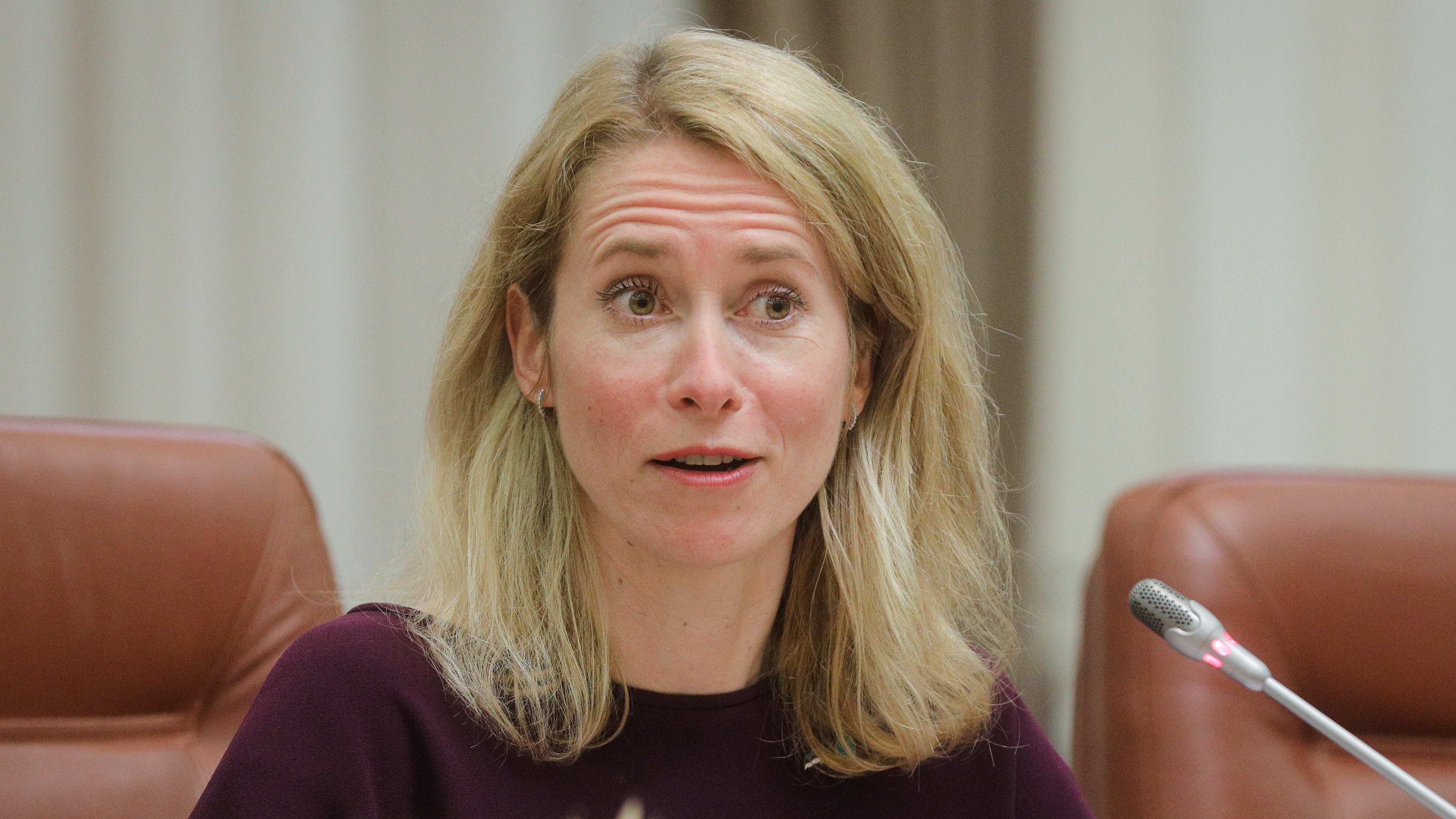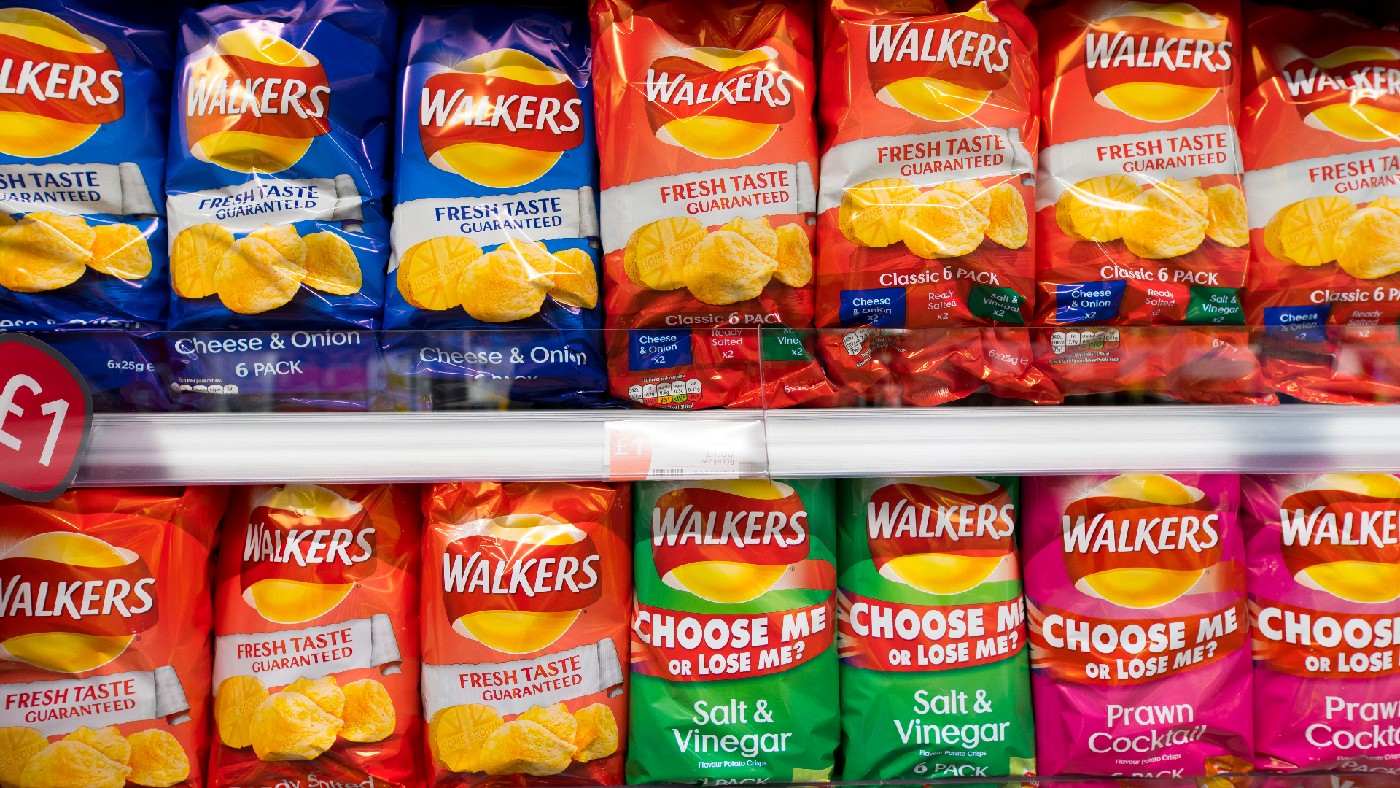Tata Steel strikes £550m deal to solve pensions riddle
Agreement will clear path for company to merge UK assets with ThyssenKrupp of Germany

A free daily email with the biggest news stories of the day – and the best features from TheWeek.com
You are now subscribed
Your newsletter sign-up was successful
Tata Steel still pursuing pension scheme law change
13 January
Tata Steel is still pursuing a radical shake-up of its £15bn UK pension scheme in a move that would require a change in the law, the Financial Times reports.
"Under plans being drawn up… members will be asked to consent to increases in future payouts being pegged to a lower measure of inflation, with the scheme put in a special purpose vehicle holding a guarantee from Tata Steel," the paper says.
The Week
Escape your echo chamber. Get the facts behind the news, plus analysis from multiple perspectives.

Sign up for The Week's Free Newsletters
From our morning news briefing to a weekly Good News Newsletter, get the best of The Week delivered directly to your inbox.
From our morning news briefing to a weekly Good News Newsletter, get the best of The Week delivered directly to your inbox.
The key challenge is the inflation change, which would save billions of pounds in future liabilities but would contravene a provision in the Pension Scheme Act 1995 stating promised benefits cannot be taken away.
Experts worry any alteration will create a precedent that unscrupulous employers could exploit to reduce pension bills. Tata argues it can be considered an exception because its own pension scheme documents from 1990 allow for benefit changes.
The proposals had the backing of former business secretary Sajid Javid, but his successor, Greg Clark, is understood to have refused to countenance the change.
Tata Steel has been stuck with a dilemma: it wants to offload its UK business, but a proposed merger with German rival ThyssenKrupp is unlikely to progress unless the burden of funding the pension scheme is removed.
A free daily email with the biggest news stories of the day – and the best features from TheWeek.com
Its plan to separate the scheme, with members that refuse falling into the Pension Protection Fund, also needs to be approved by the Pensions Regulator. However, officials are unwilling to give a green light because Tata is no longer on the brink of collapse.
Being "close to insolvency… is a pre-requisite for obtaining a regulated apportionment arrangement", says the FT.
Tata Steel was making losses of £1m a day last year, but a rise in steel prices means it is now eking out a modest profit. It is still on the hook for hefty pension payments that are only likely to rise, however.
The company's pension plans also advanced this week with a new offer of "hundreds of millions of pounds" to buy out a guarantee the scheme holds over a plant in the Netherlands.
Tata Steel rescue 'still faces pension hurdles'
9 December
The Pensions Regulator has warned "there are still major hurdles to overcome" to secure Tata Steel's pension scheme, despite this week's rescue deal, says The Guardian.
Tata has agreed to keep open both blast furnaces at the massive Port Talbot steelworks in South Wales, invest £1bn in the wider UK business and seek to avoid redundancies for the next five years.
However, in return it has demanded that workers make concessions on pay and terms, including agreeing to the closure of the final salary pension scheme to new contributions.
But experts say the move will only see a modest 1.5 per cent saving on pension contributions and that this is not sufficient to resolve the outstanding shortfall in the scheme.
John Ralfe, a pension consultant, told the Guardian: "Tata Steel is making annual cash contributions for new defined-benefit pension promises of 11.5 per cent of salary versus ten per cent for the replacement defined-contribution scheme.
"Closing the defined-benefit scheme does nothing to address the existing £15bn of liabilities."
When Tata put its UK business up for sale, its pension scheme had a £700m deficit. It is paying around £136m a year to fund this, an amount that is expected to keep rising.
That burden is a blocker to a proposed merger with German company ThyssenKrupp, which Tata is pursuing to secure its European and UK operations' long-term future. It has said it ideally wants to offload the scheme altogether.
The Pensions Regulator said: "We note the announcement from Tata Steel and look forward to seeing more detail from them regarding any proposal for the British Steel pension scheme.
"There are still significant issues to be resolved and we will consider any proposals carefully in light of their impact upon the 130,000 pension scheme members and PPF levy payers."
Regulators have been sceptical about the plan to set up the scheme up without a sponsoring employer and reluctant to send it into the Pension Protection Fund (PPF) without a much bigger financial contribution from Tata.
Entering the PPF would also be opposed by unions as it would reduce payouts to pensioners.
No easy solution presents itself, but the company is pressing on for now. The Financial Times reports Tata is close to agreeing a payment with pension scheme trustees to buy out the fund's claim on Tata's Dutch steelworks.
Pension experts warned of the risks to the financial health of the scheme if trustees did not extract a high enough price for its guarantee.
Tata Steel's £1bn rescue deal at mercy of pensions ballot
8 December
Tata Steel and trade unions have agreed a deal that will see both the blast furnaces at Port Talbot in South Wales stay open for at least five more years.
The Indian company will also invest £1bn in future steel production and pledge to seek to avoid compulsory redundancies over the next five years.
However, it wants staff concessions in return, including the closure of the £15bn final salary pension plan.
Tata wants to close the "defined benefit" scheme to new contributions and replace it with money purchase "defined contribution" funds, something most companies in the private sector have already done.
To help the deal, it has promised a maximum top-up of ten per cent of salary-to-employee-contributions of six per cent.
It's undoubtedly a less generous set-up, but is more affordable for the company.
While the unions have tentatively backed the plan, Roy Rickhuss of Community said the pension scheme closure was "a serious concern" and that they will ballot members on the proposal in the New Year.
"Tata has put a lot on the table in terms of investment and it is not clear what would happen to those commitments if this pensions deal was voted down," says the BBC.
Koushik Chatterjee, the group executive director of Tata Steel, said: "The proposed changes to future pension provision and other employment terms are necessary to de-risk the company and help achieve long-term sustainability.
"We are also working separately on a necessary structural solution for the British Steel pension scheme fund."
Pension expert John Ralfe told The Guardian the reduction from 11.5 per cent currently to ten per cent "saves virtually nothing".
Instead the long-term sustainability of the company depends on finding a workable solution to funding existing pension liabilities, against which the company has a £700m shortfall requiring it to invest £136m a year.
That is seen as blocking a proposed merger of Tata's UK steel assets with German rival ThyssenKrupp and the company has proposed spinning out the pension scheme into a separate company, or placing it in Pension Protection Fund.
Tata Steel proposes closing £15bn pension scheme
7 December
Tata Steel has suggested closing its massive £15bn final salary pension scheme as part of a plan to secure new investment into its Port Talbot plant in Wales.
The Indian-owned industrial giant was revealed yesterday to have put forward a deal to secure new investment into its remaining UK assets, which employ 9,000 people. The rescue plan would mean keeping up both blast furnaces at the South Wales site.
Tata has so far only committed to keeping both open for three years – and the Financial Times says one was due to close when that guarantee expires, "raising fears of downsizing and job cuts".
A total of 7,000 people are employed by Tata in Wales, 4,000 of whom work at the Port Talbot facility. Of these, half have roles "at the 'hot end' of the site, working on the blast furnaces and other processes that turn coke and iron ore into steel", says the Telegraph.
"An option being examined by local management is a partial relining of its interior that could extend its life by up to 10 years," adds the FT.
In return for this and other ongoing investment the company wants unions to agree to changes to staff terms and conditions.
Reports today reveal that the existing final salary pension scheme would be closed to new contributions and replaced by a "less generous – but today commonplace – defined contribution scheme".
Even if unions accept the proposals this will not be the end of the road for the pension scheme, which is seen as a "millstone" and a blocker to a mooted merger with Tata's German rival ThyssenKrupp.
"Tata Steel UK poured £136m into the defined benefit scheme during its last financial year," says the FT. This is expected to rise to £146m this year under current arrangements.
One option would be to seek agreement to move the scheme into the industry lifeboat, the Pension Protection Fund (PPF), despite the firm not being insolvent. But this would involve cutting future payouts and unions would therefore resist strongly.
The trustees of the scheme have expressed a preference for it to be hived off into a separate company, but the PPF has raised objections on the basis that with no sponsoring employer there is a greater risk of the fund eventually failing.
Tata Steel closes in on Port Talbot rescue deal
6 December
Tata Group is on the brink of a deal that will safeguard 4,500 jobs and both of the blast furnaces at its main plant in Port Talbot, Sky News says.
Unnamed sources claim the Indian-owned company is "edging closer to agreeing a deal with the steel unions which would see continued investment into the plant in return for concessions on staff terms and conditions".
Councillor Tony Taylor, who worked at the Welsh plant for 44 years, told Sky that if the future of two blast furnaces can be guaranteed, it will "secure the plant for 15 to 20 years". Currently, Tata has only guaranteed the furnaces for three years.
The Indian conglomerate announced in March it was planning to sell its UK operations following a sharp drop in steel prices, only to reconsider after the government stepped in to pledge hundreds of millions of pounds of support.
Tata has since sold off two satellite units. In June, it completed the sale of its Scunthorpe-based "long products" business, which produces steel for the rail and construction sectors, to turnaround investor Greybull Capital.
That business is now trading profitably under the revived British Steel brand.
Then last month, it struck a £100m deal to sell its speciality and pipes business in Yorkshire, which supplies the automotive, aerospace and oil and gas sectors, to global consolidator Liberty House.
The remaining rump of the business, with Port Talbot at its core, is now part of a plan to merge the broader European arm of Tata with German conglomerate ThyssenKrupp.
However, last week it was claimed the company could close of one of the blast furnaces at Port Talbot to save money irrespective of merger plans.
Port Talbot is Britain's biggest steelworks and employs more than 11,000 people directly or through its many contractor and service firms.
Tata's continued investment – and the merger with ThyssenKrupp – is said to be contingent on being able to offload or reduce liabilities in relation to the £15bn British Steel pension scheme, says the BBC.
-
 The ‘ravenous’ demand for Cornish minerals
The ‘ravenous’ demand for Cornish mineralsUnder the Radar Growing need for critical minerals to power tech has intensified ‘appetite’ for lithium, which could be a ‘huge boon’ for local economy
-
 Why are election experts taking Trump’s midterm threats seriously?
Why are election experts taking Trump’s midterm threats seriously?IN THE SPOTLIGHT As the president muses about polling place deployments and a centralized electoral system aimed at one-party control, lawmakers are taking this administration at its word
-
 ‘Restaurateurs have become millionaires’
‘Restaurateurs have become millionaires’Instant Opinion Opinion, comment and editorials of the day
-
 Can the UK avoid the Trump tariff bombshell?
Can the UK avoid the Trump tariff bombshell?Today's Big Question President says UK is 'way out of line' but it may still escape worst of US trade levies
-
 Five years on, can Labour's reset fix Brexit?
Five years on, can Labour's reset fix Brexit?Today's Big Question Keir Starmer's revised deal could end up a 'messy' compromise that 'fails to satisfy anyone'
-
 Why au pairs might become a thing of the past
Why au pairs might become a thing of the pastUnder The Radar Brexit and wage ruling are threatening the 'mutually beneficial arrangement'
-
 Brexit: where we are four years on
Brexit: where we are four years onThe Explainer Questions around immigration, trade and Northern Ireland remain as 'divisive as ever'
-
 Is it time for Britons to accept they are poorer?
Is it time for Britons to accept they are poorer?Today's Big Question Remark from Bank of England’s Huw Pill condemned as ‘tin-eared’
-
 Is Brexit to blame for the current financial crisis?
Is Brexit to blame for the current financial crisis?Talking Point Some economists say leaving the EU is behind Britain’s worsening finances but others question the data
-
 How Brexit handed a ‘financial boon’ to former Soviet state Estonia
How Brexit handed a ‘financial boon’ to former Soviet state EstoniaIn Depth Around 4,000 companies have set up shop in member state since UK left EU, prime minister says
-
 Why the UK is suffering a Walkers crisps shortage
Why the UK is suffering a Walkers crisps shortagefeature Production issues have forced snack giant to prioritise most popular varieties